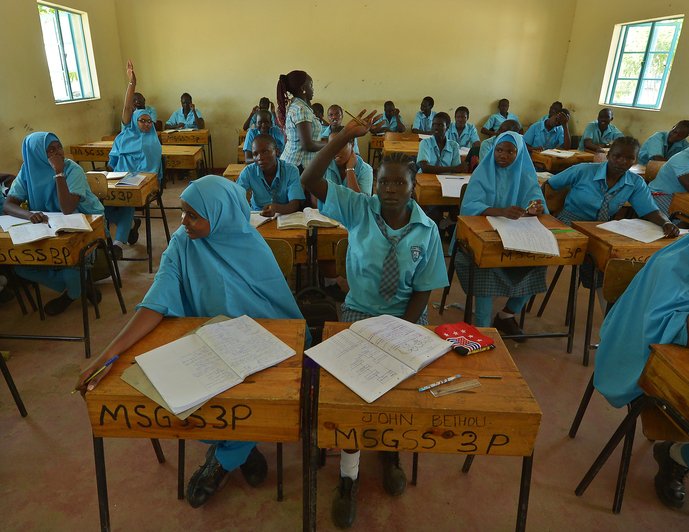Despite significant gains in enrolment at all levels, almost half of school-age refugees are still out of school. The gap in enrolment widens with progression through the levels. One-third of refugees have access to secondary education in Kenya, and less than one-sixth have access to tertiary education, including technical and vocational education and training. Barriers to school enrolment include supply issues as well as socio-economic factors, cultural norms and traditions, many of which are shared by the communities that host refugees and asylum-seekers in Kenya.
While refugees and asylum-seekers follow the Kenyan national curriculum and sit for national examinations, camp-based learning institutions have been managed and financed by UNHCR and the international community for almost three decades. Although the Government of Kenya has made a considerable contribution to the education of refugees and asylum-seekers over the past thirty years, the governance and management of learning institutions by the international community has led to an alternative system of service delivery that is less sustainable and does not adequately respond to the needs of refugees, asylum seekers and their host communities.
In line with the Global Compact for Refugees, UNHCR Kenya promotes the inclusion of refugees and asylum-seekers in the national education system, while responding to their immediate needs by
● Fostering an enabling environment that supports learning as well as psychosocial, socio-emotional and physical well-being.
● Adopting an area-based approach, supporting both refugees and asylum-seekers, and the communities that host them to access education and training, including through the use of technology, in their respective locations and which is protective, accredited and government-led.
● Investing in the national system to enable it to expand to provide quality education and training for refugees and asylum-seekers, and their host communities beyond the emergency phase, facilitating the transition from humanitarian response to durable solutions.
● Promoting opportunities for earning and for the use of education toward jobs, economic inclusion, community development, and self-reliance, benefitting both refugees, asylum-seekers and their host communities.



